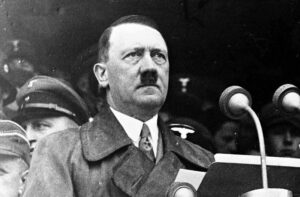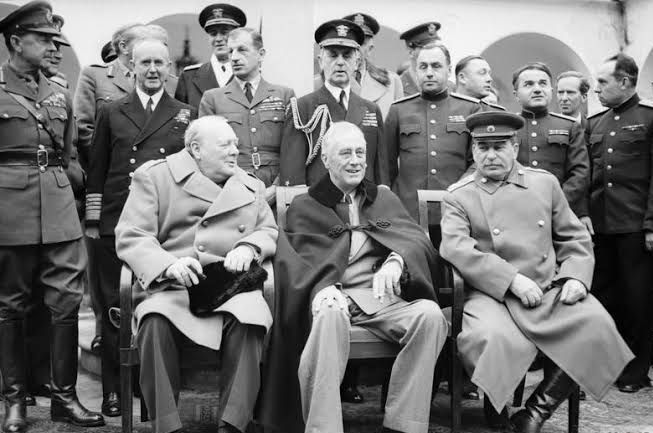World War II, one of the deadliest and most significant conflicts in human history, spanned from 1939 to 1945. Fought primarily in Europe, Asia, and Africa, it involved the majority of the world’s nations, dividing them into two major alliances: the Axis powers, led by Germany, Italy, and Japan, and the Allies, comprised of the United States, the Soviet Union, and the United Kingdom, among others.
The origins of World War II can be traced back to the aftermath of World War I, as unresolved tensions, economic hardships, and political instability created fertile ground for the rise of aggressive ideologies and territorial ambitions. Sparked by Germany’s invasion of Poland in 1939, the war rapidly escalated, engulfing countries in massive military campaigns, brutal occupations, and unprecedented atrocities.
World War II witnessed staggering human suffering, with over 70 million casualties, including millions of civilians. It brought about significant technological advancements, such as the use of atomic weapons and the rise of air power, forever changing the nature of warfare. The war’s aftermath reshaped the geopolitical landscape, marked by the emergence of new superpowers and the establishment of international organizations like the United Nations, aiming to prevent such global conflicts in the future.
Background information on the causes of World War II

World War II was primarily caused by a complex interplay of political, economic, and ideological factors. Several key events and underlying causes contributed to the outbreak of the war.
The Treaty of Versailles, signed in 1919, imposed harsh conditions on Germany as the defeated nation of World War I. The punitive measures, including massive reparations and territorial losses, humiliated Germany and fueled resentment, laying the groundwork for Hitler’s rise to power.
The Great Depression of the 1930s, triggered by the Wall Street Crash of 1929, had severe global economic consequences. This economic downturn weakened democracies and created fertile ground for the emergence of totalitarian regimes, such as Adolf Hitler’s Nazi regime in Germany and Benito Mussolini’s fascist government in Italy.
Expansionist ambitions of Nazi Germany, Imperial Japan, and fascist Italy also played a significant role in causing the war. Hitler’s aggressive pursuit of lebensraum (living space) and his quest for racial purity drove Germany’s territorial ambitions. Similarly, Japan sought to establish an empire in East Asia, leading to its invasion of Manchuria in 1931 and subsequent expansion into China.
The policy of appeasement pursued by Western democracies, in an attempt to avoid war, inadvertently emboldened aggressive powers. The failure to confront Hitler’s territorial ambitions, notably the annexation of Czechoslovakia in 1938, further escalated tensions and paved the way for the outbreak of war.
These factors, along with the failure of international institutions like the League of Nations to effectively prevent aggression, created a volatile global environment that ultimately erupted into World War II in 1939 with the German invasion of Poland.
Key Players and Alliances
World War II involved a wide array of key players and alliances that shaped the course of the war. The major alliances during this global conflict were the Axis Powers, led by Germany, Italy, and Japan, and the Allied Powers, primarily composed of the United States, the Soviet Union, and the United Kingdom.
The Axis Powers, formed in 1936, aimed to establish a new world order under fascist ideologies. Germany, led by Adolf Hitler, sought territorial expansion and dominance in Europe. Italy, led by Benito Mussolini, aimed to restore the glory of the Roman Empire, while Japan, under Emperor Hirohito, pursued imperialist ambitions in the Asia-Pacific region.
On the other side, the Allied Powers united to counter the Axis aggression. The Soviet Union, under Joseph Stalin, bore the brunt of the Eastern Front, enduring the largest and bloodiest battles of the war. The United States, led by President Franklin D. Roosevelt, provided crucial economic and military support to the Allies. The United Kingdom, under the steadfast leadership of Prime Minister Winston Churchill, played a vital role in defending Europe against Nazi Germany.
Throughout the war, the alliances evolved and expanded as more nations joined the conflict. Key players like France, China, and Australia joined the Allied Powers, while Germany formed partnerships with other countries, such as Finland and Hungary.
The success of the Allied Powers ultimately led to the defeat of the Axis Powers in 1945, marking a turning point in world history and reshaping the global geopolitical landscape for decades to come.
Impact of World War II on the Home Front
World War II had a profound impact on the home front, affecting every aspect of life for those living in the countries involved in the conflict. The war brought about significant changes in the social, economic, and cultural fabric of nations across the globe.
One of the most immediate and visible impacts was the mobilization of economies for war production. Factories shifted from producing civilian goods to manufacturing weapons, vehicles, and other supplies needed for the war effort. This led to an increase in employment opportunities, especially for women, who took up jobs traditionally held by men. The war also sparked technological advancements, as governments invested heavily in research and development to gain a competitive edge.
On a social level, the war brought communities together as they rallied around a common cause. Rationing and shortages became a way of life, with governments implementing strict rationing systems to ensure fair distribution of essential resources. Citizens collected scrap metal, planted victory gardens, and participated in bond drives to support the war financially.
The war had a profound psychological impact as well. Families faced the anxiety of having loved ones serving overseas, and the fear of air raids and bombings became a constant presence. Propaganda played a significant role in shaping public opinion and boosting morale.
Furthermore, the war led to significant social changes, particularly for women. The influx of women into the workforce challenged traditional gender roles and paved the way for later movements advocating for gender equality.
Legacy and Lessons Learned
World War II left an indelible legacy on the world that continues to shape our societies and global affairs to this day. It was a cataclysmic event that claimed the lives of millions and caused immeasurable suffering. However, amidst the darkness, it also brought forth important lessons that humanity must never forget.
One of the most significant legacies of World War II is the establishment of the United Nations. The realization that global cooperation is essential to prevent future conflicts led to the creation of this international organization in 1945. Its aim was to promote peace, security, and cooperation among nations – a powerful testament to the importance of diplomacy over armed conflict.
The war also exposed the atrocities of genocide and the Holocaust, forcing the world to confront the depths of human cruelty. It sparked the recognition of human rights as an international concern, inspiring the Universal Declaration of Human Rights in 1948.
Furthermore, the conflict accelerated technological advancements. The war effort led to the development of radar, nuclear power, and other innovations that have since transformed various aspects of society, from medicine to communications.
The lessons learned from World War II include the importance of diplomacy and dialogue in resolving disputes, the dangers of nationalism and unchecked power, and the need for international cooperation to tackle global challenges. It is crucial that we preserve the memory of this war, so future generations can draw wisdom from the past and work towards a more peaceful and just world.
Lasting Impact on Global Politics
One of the most evident outcomes of WWII was the emergence of two superpowers—the United States and the Soviet Union. Their military and economic might, coupled with their differing ideologies (capitalism and communism, respectively), led to the Cold War. This decades-long standoff created a bipolar world and fueled numerous proxy conflicts that influenced politics in regions like Latin America, Africa, and Southeast Asia.
Furthermore, the war’s aftermath saw the establishment of international organizations aimed at maintaining peace and cooperation. The United Nations was founded in 1945 to prevent future global conflicts and foster diplomatic dialogue between nations. Though it faced challenges in its mission, the UN remains a critical player in international relations.
WWII also significantly redrew national borders and led to the decline of colonial empires. European powers, weakened by the war, gradually relinquished control over their overseas territories, granting independence to many countries in Africa and Asia. This shift not only reshaped global politics but also laid the foundation for new alliances and diplomatic configurations.
Moreover, the devastating impact of WWII emphasized the importance of diplomacy and the necessity of international cooperation. Nations realized that they had to work together to address global challenges such as nuclear proliferation, environmental issues, and terrorism.
In conclusion, World War II’s lasting impact on global politics can be seen in the emergence of superpowers, the establishment of international organizations, the decolonization of Africa and Asia, and the emphasis on diplomacy and cooperation. The consequences of the war continue to resonate in today’s geopolitical dynamics, influencing how nations interact and collaborate in a rapidly changing world.

